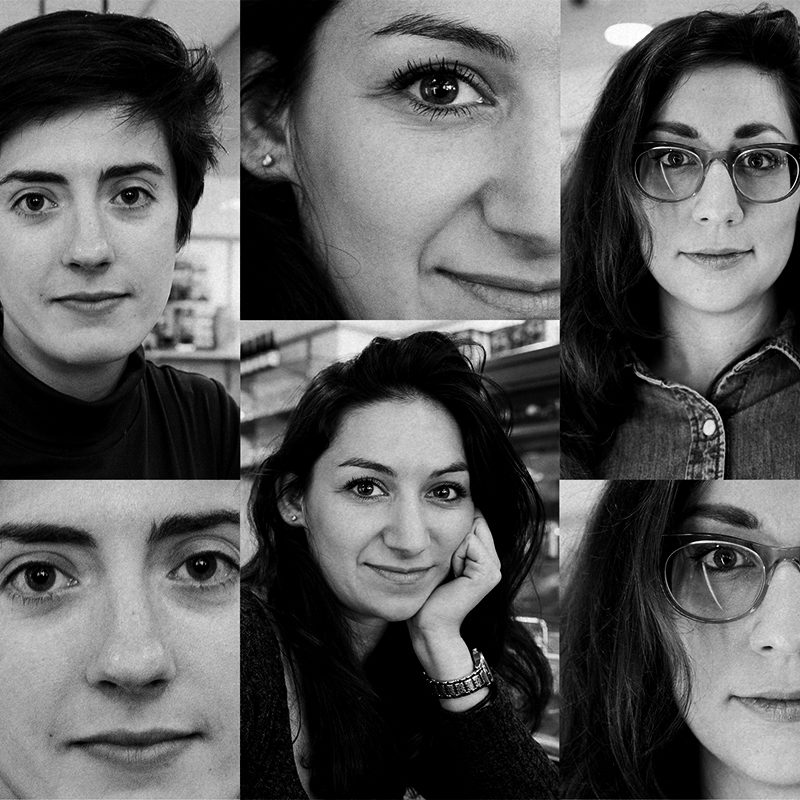The Women of “Folk Wandering”
Written by Sarah Rebell
Photography by Jacqueline Harriet
March 6th, 2018
Playwrights and musical theatre writers are often told to scale back their visions, cut down their cast sizes, and think in smaller terms. Not at Pipeline. This theatre company, currently in its ninth year, strives to present their writers’ biggest, wildest, most unbridled theatrical dreams. Folk Wandering is a case in point. This new musical, conceived by Jaclyn Backhaus (Men on Boats), weaves together three different storylines, all featuring female protagonists, from three different eras in American history, with music composed by nine different songwriters. We recently spoke to the women of the Folk Wandering creative team: Pipeline Artistic Director Ari Schrier, Pipeline Producing Director Natalie Gershtein, Jaclyn (with special guest “Folk Wandering superfan” Ernie Scoville, Jaclyn’s two year old son), and songwriters Jo Lampert, Barrie McLain, Annie Tippe, and Dominique Toney, about collaborating on devised theatre while navigating the realities of day jobs and student loans, and why they are standing on the shoulders of the women who came before them.
How did the idea for Folk Wandering come about?
Jaclyn: I started writing the piece in 2010. It was a series of vignettes that didn’t seem to have any linking material. I thought it was going to be a play, but there were a lot of passages that were a bit more epic, a bit heightened. I had this hypothesis that it could be a play that had music elements. I’m not a music-based person myself, so I started talking to my friend Andrew Neisler, who’s the director. We started to imagine what it could be like with music elements.
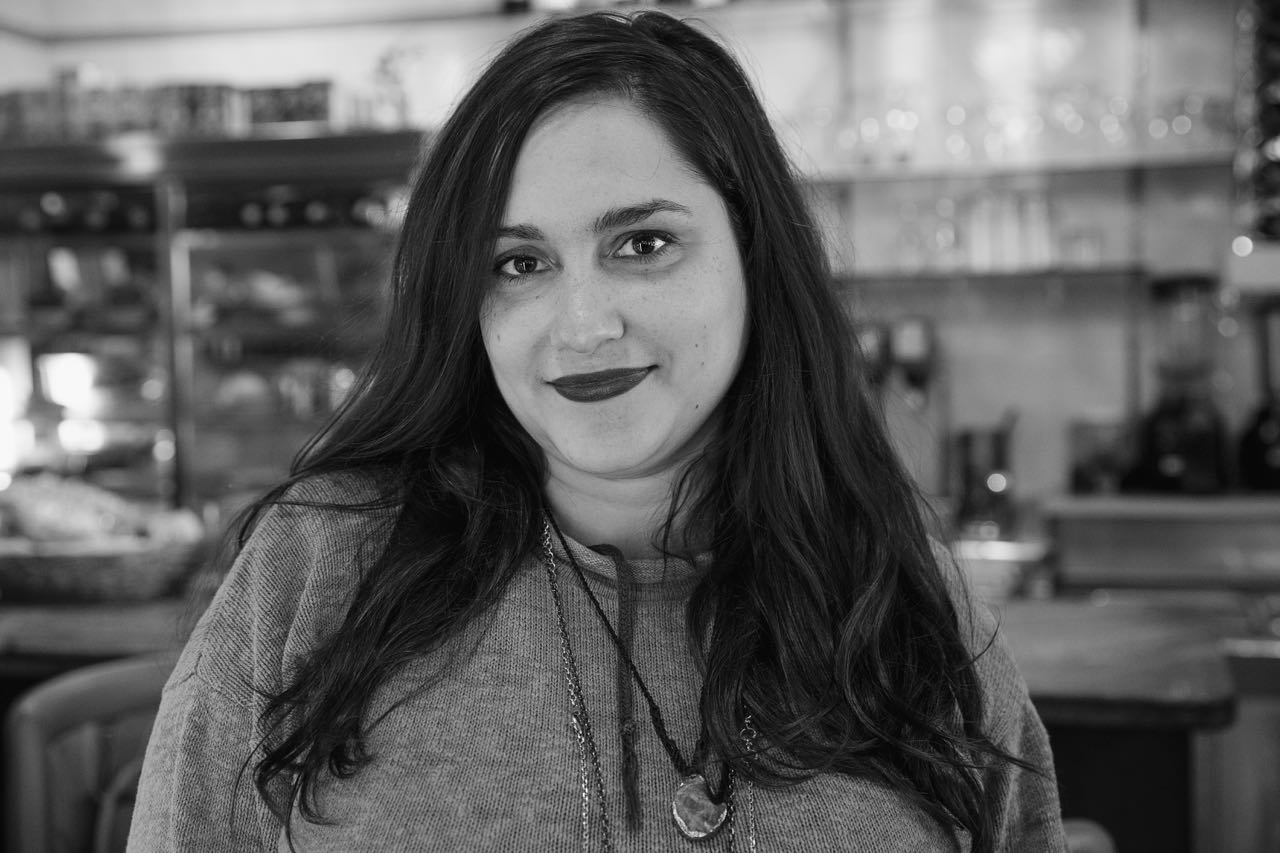
What was it like getting that call and saying, “Hey, do you want to compose some music for this workshop? We don’t know what it will be.”
Annie: That’s classic Andrew Neisler: “Come meet in this room. Just show up for three hours. I don’t know what the plan is.” And actually there is a very detailed plan once you get there.
Jo: The main thing I remember is going into a room, not knowing what I was getting into or what it was about. I just knew that Jaclyn had written a script. She was basically like, “I want to make this music happen.”
Dominique: There were certain people in our group who were more connected to the source material, who had really researched the stories or already knew the context. I just came in like, “Let me be someone that can just be another pair of ears, or another mouthpiece for the words and the lyrics.”
Annie: Speaking as someone who doesn’t consider themselves a songwriter by trade, there was something extremely empowering about getting to join with other forces and say that you had created a song. You could bring the skills you had without feeling like something was totally falling on you.
Ari: Annie says that [she’s] not a composer by trade, but some of the most catchy riffs in this show are Annie Tippe compositions. She has this weird knack for creating these little melodies that you cannot get out of your head.
Jo: I don’t really experience myself as a composer [either]. I wasn’t even thinking of my role as a composer but as a creator, discovering what melodies felt right for the very evocative lyrics that existed.
Barrie: We [Barrie, Annie, Jo, Jaclyn, Andrew] all went to the Playwrights Horizons Theater School [at NYU]. Our education style was very multidisciplinary, very collaborative. We’d been in situations where we were creating, giving each other feedback, trying things out. Folk Wandering felt like a really natural continuation of that process.
Jo: Playwrights Horizons was always telling us, “You need to get your feet wet creating original work.” Playwrights truly gave me a real sense of collaboration, and as scary as creating original work was, I realized it was teaching me what I can be.
Dominique: Andrew and I [met] working on Political Subversities, which is a musical sketch comedy group formed out of the brain of [former NYU professor] Liz Swados. I think that with Liz and at [NYU’s Experimental Theatre Wing], I started to learn a language for writing music that was nontraditional. With Liz, what we would do was—and this is what we ended up doing in Folk Wandering—we would break off into small groups, work on something, create something, and whether it was bare bones or fully fleshed out, it didn’t matter. It became less about, “Is it good?” and more about, “How can we take this baby idea and develop it with all these amazing creative minds?”
Ari: I didn’t go to Playwrights Horizons, but I went to NYU Tisch [the Atlantic Acting School] at the same time all of these guys were there. So we’ve all known each other for years, and we all look at this as a massive family, community endeavor.
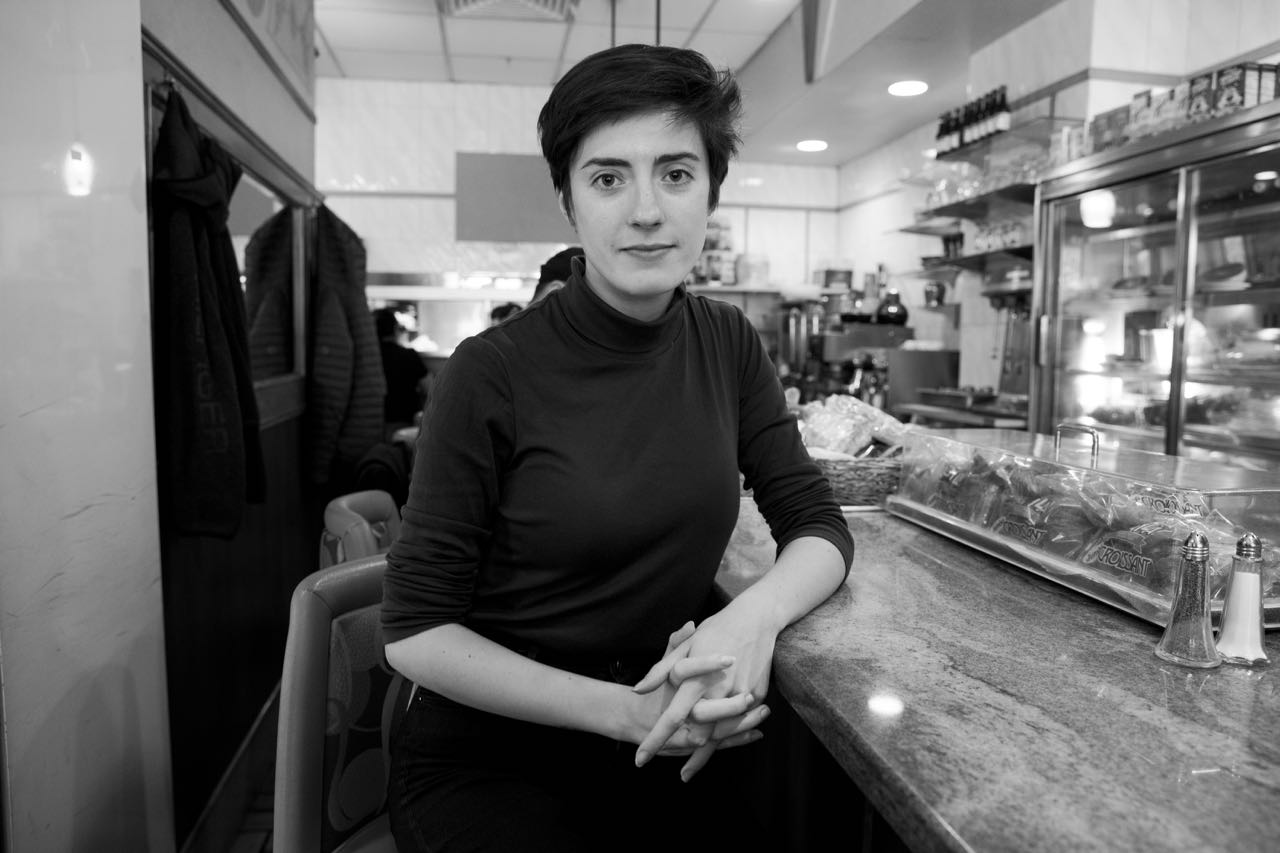
Pipeline was created for a class at the Atlantic Acting School, right?
Ari: In your third year [at Atlantic], you must start a theatre company. Of course that is a self-contained class project. Some of the companies go on, some of them don’t. We happened to be a year that was particularly cohesive. We were really hungry to learn, and it was also a group of people that loved working together. About three years in, we identified that the thing we really have to contribute is bringing into reality the biggest, wildest ideas of the emerging artist community. We saw a lot of people getting their smallest ideas realized, but never their biggest ideas. We wanted to be the place that would say yes to the things that seemed impossible, at a point in people’s careers where they usually don’t get that opportunity.
Natalie: We believe an unbridled imagination is a force of magic with the power to provoke. We want to represent our entire community. It’s a choice to both further our mission and to give voice to varying perspectives. It’s exciting that we’re two women running a company, but to me, we are really supporting diversity in all of its forms and angles.
Ari: Every season we’re able to represent more perspectives, but I would say that we’re not even close to representing the number of different perspectives that I hope that we’ll be able to soon.
How did Pipeline decide to produce Folk Wandering?
Ari: I think it’s really an incredible fit. We are here to bring to life the wildest dreams of the emerging artist community and this [show] is this collective dream of eleven people. With each passing day, the story has gained urgency, both in the words that are literally on the page and what’s happening in the world. [Folk Wandering’s] relevance feels urgently of this moment in a way that I didn’t expect when we programmed it two years ago.
Jaclyn: It’s a glimpse into three bygone American eras, through the lenses of women that are living in those times. It’s all swirling around this idea of what the American dream is, and who the American dream was created for. We started writing it during the Obama times, and it definitely started to mean something a little different more recently, but the truth of the show was always in there. [Folk Wandering] was born of this idea of collective power, what joy and what solace can be found in a group of people who are acting together, for each other rather than for themselves. And that is timeless, no matter what presidency we’re in.

Did delving into the lives of these women and exploring their American dreams influence how you think about yourself as a woman living in America today?
Dominique: Anytime a woman is fighting for her dreams or overcoming adversity, it sparks a fire and reminds me women have come such a long way. But that doesn’t excuse anything. Especially in light of everything that has been going on in the last couple of months with the #MeToo movement, it’s crazy and it’s very serendipitous that we get to share this story now.
Ari: The character of Hannah [who is chasing after a man who is a narcissist] has really shaken me, and made me revisit some of my past. Making this show happen while dealing directly with that story has definitely given me the courage to be stronger in my own daily life, dealing with dating in New York. I can’t let myself fall into those traps when I’m making a show about those traps.
Natalie: The storyline that gets me every time, from the first moment I read it in my apartment, is the Rosealia storyline. It’s Italian immigrants coming to New York, and my family are Russian immigrants who went to Canada. The youngest female in that generation has these huge, ambitious dreams to be a journalist. She’s standing on the shoulders of her mother, who works in a factory for pennies just to give her daughter a different life. I feel like Rosealia. I get to be a theatrical producer, whereas my mom’s an accountant, my grandfather was a plumber. I’m standing on the shoulders of my family, who worked so hard for me to have this life.
Barrie: It’s such an incredible way to take stock of the privilege that we live in now, because of the hard work of the generations of women who came before us.
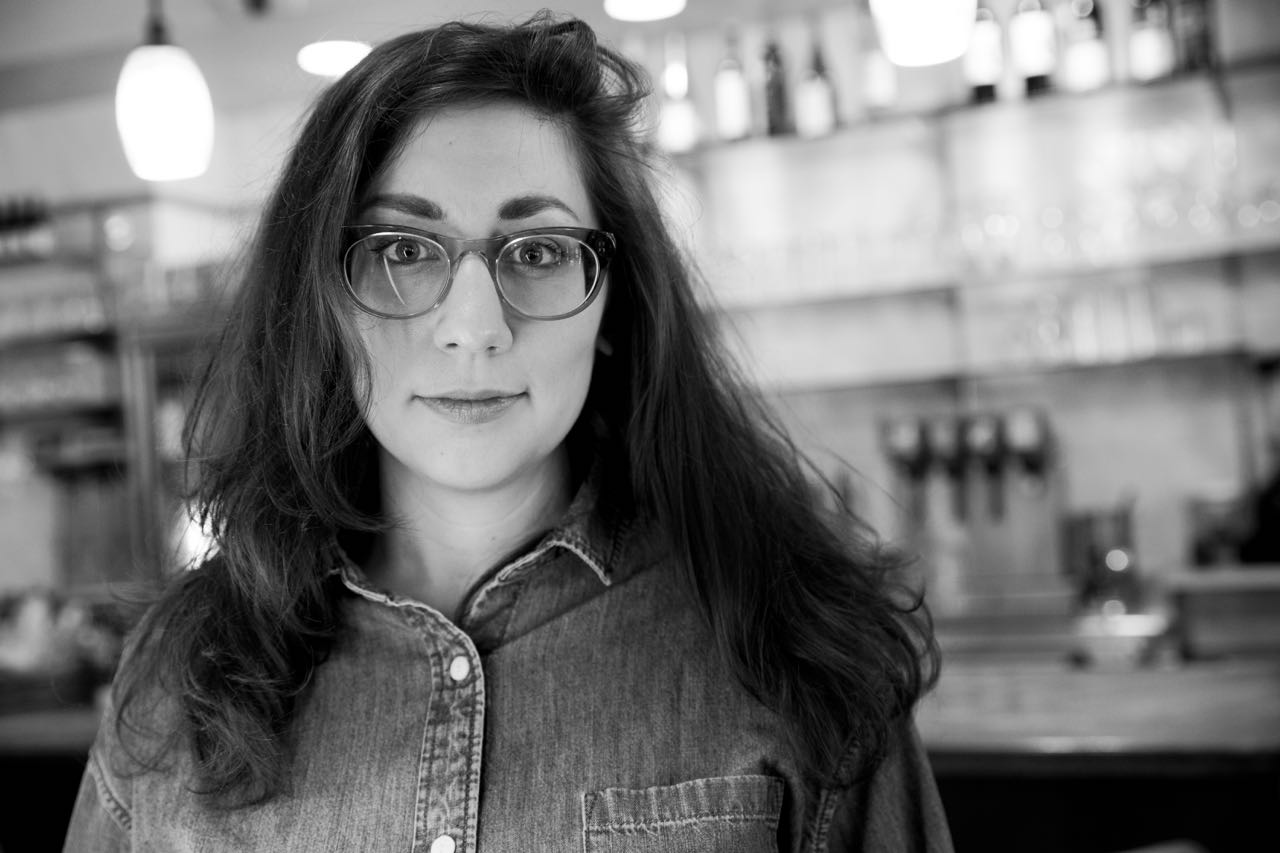
How have you handled sacrifices and challenges of trying to pursue your theatrical dreams?
Jaclyn: I’ve had a lot of great gifts handed to me via support and mentorship from artists who are older, of another generation, who are able to support certain plays of mine. Also, my mother grew up with dreams of becoming a writer, and her parents, who had immigrated to this country from India, were like, “You cannot follow that path. You must go into the sciences or something if you want a job,” So she did, and then forty years later, she went back to school to get her MFA in creative writing. It was her experience that gave me the emotional support to live this way, even though it is incredibly hard. I’m going to be paying my loans off until I die, but I do have a happy life. So far, the trade is worth it.
So, you’re standing on your mother’s shoulders.
Jaclyn: Yeah, I am. I love her.
Natalie: I feel the same. I went to undergrad in Canada, and then I came here and I went to the Columbia MFA for Producing. And I had a little bit of debt already in undergrad, but tuition in Canada is nothing like America. It’s that kind of idea of privilege where you’re like, “Wow, how privileged am I that I even got to choose?” Except what I chose was a life of debt and no money. But that was my choice, and I agree, I’m going to be paying debts until I die, but I have a happy life, so it’s like, happiness vs. stability.
Ari: When I was deciding to go to NYU, I was determined; nothing was going to change my mind. It was mid-recession, and I had this thought that I [told] anyone who would ask how I was going support myself: “Nobody in my generation’s going to be able to support themselves. At least I’m going into this with my eyes open about it.” I’m also speaking from a privileged situation. I have loans leftover from college that I’m going to be paying for the rest of my life, but I don’t have crippling loans, and I recognize that saying yes to debt is a privilege.
Jo: I was very privileged that my parents helped me out and I did not have loans, but I wish that I could make millions of dollars so that I could help pay my friends’ loans. It’s a really unfair burden. I certainly feel lucky to have gone to Tisch, but you don’t have to go to a program like that. It’s sad to even have to say that, sad there has to be this insane quandary, when people have dreams about the school they want to go to.
Dominique: We spent four years in school learning about craft, text analysis, how to develop a character, physicality, but I wish we’d had courses about how to do taxes as a performer, other ways to make a living when you’re not making a living doing your craft, or how to have multiple streams of income. I wish our school had taught us that you can be in multiple lanes, or rather, you should be in multiple lanes, because that’s how you’re going to survive.
Barrie: My strategy post-college, which actually took me away from Folk Wandering [for a few years], was that I worked other jobs full time. I worked retail. I worked I food service. I was a personal assistant. I always had art present, but on the back burner. I think that’s an important perspective to share, that you can maintain your life and identity as an artist while earning money and paying rent.
Jo: I worked at Joe’s Pub for three years as the Artist Relations Associate. The best day jobs are the ones in the field. Sometimes it’s a harsh reality and it can be soul sucking, but it’s exciting to always have your hand in something else.
Ari: I still have a full-time job outside of Pipeline. That’s how I pay the bills. I’m a program director for a tutoring company called Tutor Associates.
Natalie: I also have a part-time job outside of Pipeline. I’m on the executive producing team of Come From Away.
Jaclyn: I was working for a long time in a wine shop in Bushwick, and then I got pregnant, and I was like, well now I can’t drink for like 10 months, so may as well go whole hog into [playwriting].
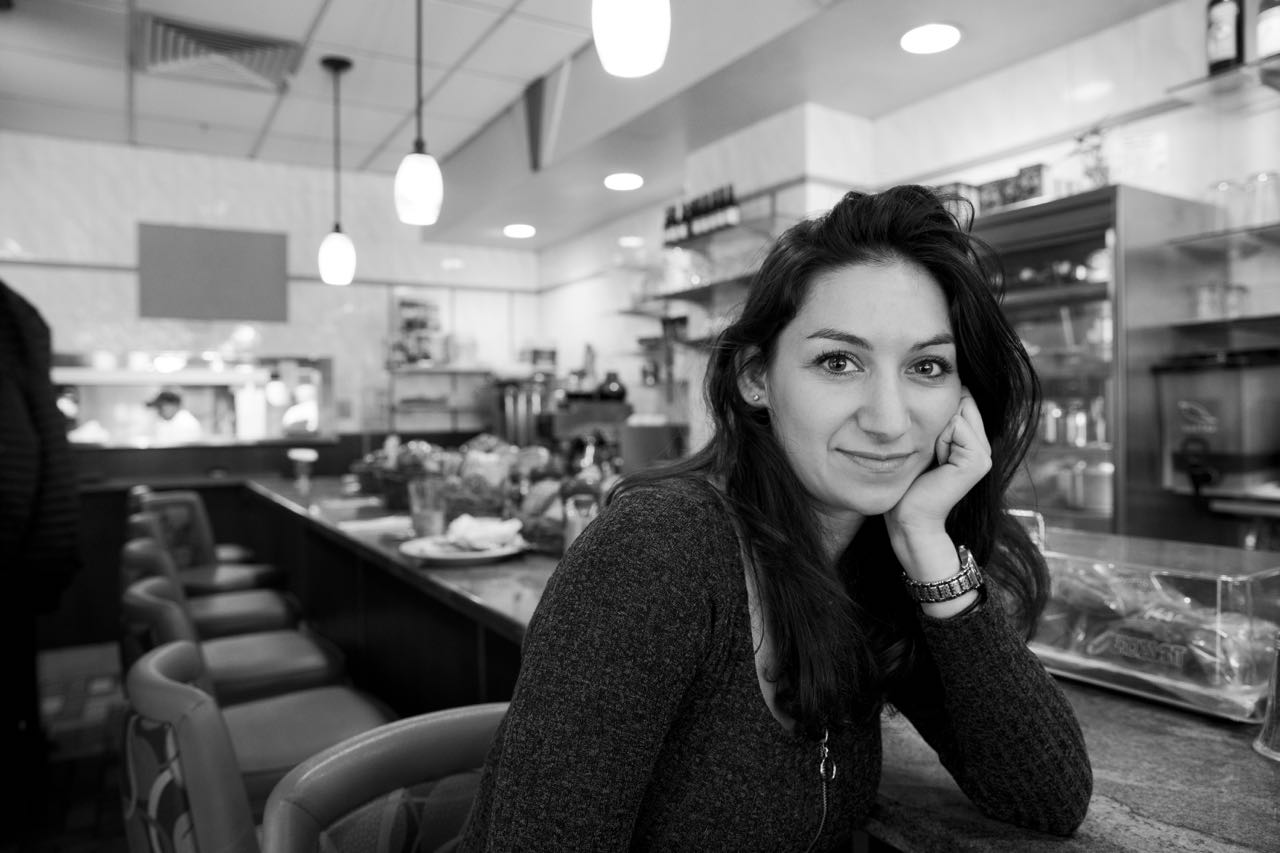
I’m glad that you mentioned motherhood because we have a very special guest here, your two year old son Ernie. Has Ernie gone to any Folk Wandering rehearsals?
Jaclyn: Ernie’s been to a few rehearsals and to a few days of tech. My husband is also in theatre. He’s a director, working on Sweeney Todd down at Barrow Street and on the Brobot Johnson Experience, which is at the Bushwick Starr. So he’s doubled up, and I’m doing this. We have a nice cohort of student babysitters and good friends who are coming in to pinch hit with [Ernie], which is good. But he’s been to techs before. He’s been in rehearsals before. He loves theatre. He loves the idea that people are making things together in a room.
Pipeline seems like such a family friendly, community-oriented environment.
Ari: Everyone’s sort of obsessed with Ernie. If Jaclyn brings him into rehearsal rooms, the rehearsal screeches to a halt because everyone just wants to hang with him. But there’s no money in theatre, and childcare is hard, and women have kids. To create that barrier, to say that Ernie couldn’t be around, would be a ridiculous thing to do.
Jaclyn: I came up in my career as a playwright around the same time that I was pregnant, so if people wanted to work on my things, they had to also respect my situation as a mother. So far everyone has been very cool. And my husband has had the same experiences. He’s a very hands-on dad, and the companies he works with, the Sweeney Todd company, they’re all obsessed with [Ernie]. It seems like there’s a little bit of a cultural shift.
Annie: Theatre is probably at the head of that curve.
Other than an adorable toddler interrupting rehearsals, what other challenges have arisen from such a large group collaborating together on Folk Wandering?
Annie:A lot of the composers are doing double duty. Some of the composers from our team have moved to LA. They’re not currently participating in this iteration, but their work still stands. And some of the composers are acting as arrangers, as orchestrators, as instrumentalists, and they are performing as leads in the show.
It must be quite an experience to go from the headspace of, “I’m collaborating with this person as a composer,” to, “Now this person’s singing what we just wrote.”
Annie: Yeah. I think one of the key elements to this stage in the process has been delegation. There’s less time to play like we used to, but we’re just getting more efficient as well.
Ari: Pastor Foster [at St. John’s Lutheran Church] was like, “Here’s the basement of this church. Here are all of these pianos. Live in this church. Fill it with music.” So, we had this incredible resource that we’ve been able to move in and out of since October, [which gave] the composers the space to be in the same world together before rehearsals. And then once rehearsals started, it became more remote conversations, just making it happen where it needed to happen.
Natalie: With nine composers, the challenge is that you don’t want the show to feel disparate. Because they’re all melding their voices and working together, it really doesn’t feel that way. There are riffs or motifs woven throughout different songs, so different people’s contributions are happening throughout. It really does unify everything.
Barrie: At this point, I think that the piece is teaching us what it needs and we’re just all responding in kind.
Natalie: Everyone is so generous with their work that everyone has ownership over the whole. Everybody is working on everything.
This conversation has been edited and condensed. Interviews with Jo Lampert and Dominique Toney were conducted over the phone at a later date.

